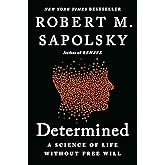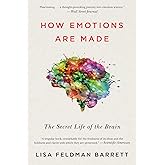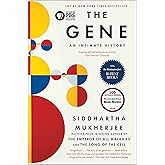
Enjoy fast, free delivery, exclusive deals, and award-winning movies & TV shows with Prime
Try Prime
and start saving today with fast, free delivery
Amazon Prime includes:
Fast, FREE Delivery is available to Prime members. To join, select "Try Amazon Prime and start saving today with Fast, FREE Delivery" below the Add to Cart button.
Amazon Prime members enjoy:- Cardmembers earn 5% Back at Amazon.com with a Prime Credit Card.
- Unlimited Free Two-Day Delivery
- Streaming of thousands of movies and TV shows with limited ads on Prime Video.
- A Kindle book to borrow for free each month - with no due dates
- Listen to over 2 million songs and hundreds of playlists
- Unlimited photo storage with anywhere access
Important: Your credit card will NOT be charged when you start your free trial or if you cancel during the trial period. If you're happy with Amazon Prime, do nothing. At the end of the free trial, your membership will automatically upgrade to a monthly membership.
Buy new:
-12% $16.62$16.62
Ships from: Amazon.com Sold by: Amazon.com
Save with Used - Good
$13.94$13.94
Ships from: Amazon Sold by: Special k enterprises

Download the free Kindle app and start reading Kindle books instantly on your smartphone, tablet, or computer - no Kindle device required.
Read instantly on your browser with Kindle for Web.
Using your mobile phone camera - scan the code below and download the Kindle app.

OK
 Audible sample Sample
Audible sample Sample 


Innate: How the Wiring of Our Brains Shapes Who We Are Paperback – March 31, 2020
Purchase options and add-ons
A leading neuroscientist explains why your personal traits are more innate than you think
What makes you the way you are―and what makes each of us different from everyone else? In Innate, leading neuroscientist and popular science blogger Kevin Mitchell traces human diversity and individual differences to their deepest level: in the wiring of our brains. Deftly guiding us through important new research, including his own groundbreaking work, he explains how variations in the way our brains develop before birth strongly influence our psychology and behavior throughout our lives, shaping our personality, intelligence, sexuality, and even the way we perceive the world. Compelling and original, Innate will change the way you think about why and how we are who we are.
- Print length312 pages
- LanguageEnglish
- PublisherPrinceton University Press
- Publication dateMarch 31, 2020
- Dimensions5.2 x 1 x 7.9 inches
- ISBN-100691204152
- ISBN-13978-0691204154
Frequently bought together

Similar items that may ship from close to you
Editorial Reviews
Review
"One of Forbes' Must-Read Brain Books of 2018"
Review
"Innate is the best guide to the intersection of neuroscience, psychology, and genetics that I've found in recent years. . . . If there's any question you have about how our brains make us who we are, chances are you’ll find an enlightening answer in Innate."―Carl Zimmer, Publishers Weekly
"Engaging."―Anthony King, Irish Times
"A lucid, up-to-the-minute account of the human mind. . . . In considering the social, ethical, and philosophical implications of the accumulation of scientific discoveries, Mitchell changes the paradigm of what truly defines human nature."―Tiffany Jeung, Inverse
"Nature versus nurture is a centuries' old distinction, but neuroscience and genetics are taking us to a new level of sophistication in understanding it…. Mitchell's book is a new landmark in this debate, with clear and substantive explanations of the new light that biology is shedding on an old question."―Steven Pinker, author of The Blank Slate
About the Author
Product details
- Publisher : Princeton University Press (March 31, 2020)
- Language : English
- Paperback : 312 pages
- ISBN-10 : 0691204152
- ISBN-13 : 978-0691204154
- Item Weight : 10.4 ounces
- Dimensions : 5.2 x 1 x 7.9 inches
- Best Sellers Rank: #758,130 in Books (See Top 100 in Books)
- #546 in Genetics (Books)
- #574 in Medical Neuropsychology
- #1,090 in Popular Neuropsychology
- Customer Reviews:
About the author

Kevin Mitchell is a neurogeneticist interested in the relationships between genes, brains, and minds. He is a faculty member at Trinity College Dublin, Ireland, in the departments of Genetics and Neuroscience. He writes the Wiring the Brain blog (www.wiringthebrain.com) and is on Twitter @WiringtheBrain
Customer reviews
Customer Reviews, including Product Star Ratings help customers to learn more about the product and decide whether it is the right product for them.
To calculate the overall star rating and percentage breakdown by star, we don’t use a simple average. Instead, our system considers things like how recent a review is and if the reviewer bought the item on Amazon. It also analyzed reviews to verify trustworthiness.
Learn more how customers reviews work on AmazonReviews with images
-
Top reviews
Top reviews from the United States
There was a problem filtering reviews right now. Please try again later.
At the heart of all this is DNA, the simple, inert coding that has been passed on for millions of years. Mitchell has this analogy that shows its amazing ability:
The famously lengthy novel War and Peace has approximately 587,000 words. With an average of five to six letters
per word, this amounts to about three million letters. Imagine if you had to copy War and Peace, by hand, letter by
letter, but multiply the length by a thousand—that is the scale of the job that a dividing cell has to do when
replicating its genome. You’d probably forgive yourself a few errors.
Perhaps even more interesting is that DNA has a proofreading repair enzymes that fix most errors that occur.
The first part of the book drills home the concepts that psychological traits are mainly effected by 1) a multiplicity of genes acting in concert and 2) variation in how brain circuits develop. Twin studies consistently show little environmental effect on psychological traits. In fact, it is most likely the case that upbringing is effected by genes and not vice versa. A child who is patient and thoughtful, may change the way in which their parents treat them. Even “peak alpha frequency” or the way our brain processes time seems to be “at least 50% heritable.”
The second part of the book then goes deep into these concepts. For instance, synesthesia is a condition that melds colors with music tones. It is interesting to hear that musicians such as Billy Joel, Kayne West, Duke Ellington and Pharrell Williams have all had it. Other deep dives:
Intelligence:
-Flynn effect shows environmental factors at play even though there is high heritability within families.
-Adoptive siblings have IQ correlation scores of .25. Biological siblings have a score of .60.
-IQ scores taken at age 11 are good predictors of scores at age 87.
-Gene variants predict 3% of educational attainment but that could be as high as 30% as we learn more.
-High IQ individuals expend less brain activity on difficult tasks since they don’t need to think as hard.
-Facial symmetry, a marker of developmental robustness and attractiveness, also correlates to high IQ.
-People with very high IQs tend to have relatives with very high IQs.
-General intelligence accounts for 40-50% of variation in performance of IQ tests.
-Parents and siblings of people with Down syndrome typically have normal IQs because DS is caused by a single, discrete mutation.
-Males show greater IQ variance than females: there tend to be a few more intelligent and more low IQ males than females. This may be due to testosterone’s effects on variability, the instability of the X chromosome or perhaps an environment where males are encouraged at an earlier age.
-Brain size is associated with higher IQ. Yet, males have a 10% larger brain than females but similar IQs.
Gender:
-Genders exist because you want DNA diversity so you need both an egg and sperm (at least 2 different organisms, an egg cannot impregnate its own egg).
-Since female reproductive ability declines with age, females retain more juvenile features like a high pitched voice.
-If one identical twin is homosexual, the other has a 30-50% probability of being homosexual too. For fraternal twins, its 10-20%.
-If you cloned a heterosexual male, they would be attracted to women 100% of the time. If you cloned a homosexual, not all clones would be attracted to the same sex.
-On the Big 5, women tend to score higher on agreeableness and neuroticism. Slightly better on conscientiousness. Men score higher on openness to new ideas. No strong link to Extraversion.
-Developed nations, which have high gender equality, show the greatest degree of difference in personality traits between sexes. Perhaps in wealthy nations, people can expend resources to advertise the resources they have.
-Androgen insensitivity syndrome, where testosterone is not detected, could lead to a fetus developing as a women yet having a masculine brain.
Autism:
-Males show higher rates of autism, ADHD and dyslexia (about a 4:1 ratio), intellectual disability and schizophrenia (about a 3:2 ratio), stuttering (7:3) and Tourette’s syndrome (9:1). Females have a higher prevalence of depression and anxiety disorders, as well as dementia, migraine, and multiple sclerosis (all about a 2:1 ratio).
-As rates of autism diagnoses have increased, there has been a matching decrease in rates of diagnosis of “mental retardation” or “intellectual disability”
-If one of a pair of identical twins has schizophrenia, the chance that the other will be similarly diagnosed is ~50%. For fraternal twins (of the same sex), this rate is only ~15%. For autism, the rate of identical twins being coaffected is over 80%, while in fraternal twins it is only ~20%.
-Environment and heritability are not factors in schizophrenia. It is most likely caused by genetic mutation.
-The number of mutations in individuals is linearly related to their fathers’ age when they were conceived. Offspring born to 40-year-old fathers have about twice as many new mutations as those born to 20-year-old fathers.
-A child with autism may start out life with less innate interest in other people’s eyes. The child may thus miss out on the social cues of shared gaze that are so important to language development and communication. This may lead to deficits in social cognition or delays in language acquisition, even though language systems were not directly affected by the causal mutation.
The author wraps up by talking about two hot button issues today: 1) Neuroplasticity 2) Epigenetics. Neuroplasticity is the idea that the structure of the brain is not fixed. Your brain is constantly being rewired. Epigenetics is the idea that genes can express themselves differently depending on environmental cues. In both cases, Mitchell suggests that while both mechanism allow us to defy genetics in a minute way, we should all be happy with who we are.
The only minor flaw: for a few of the major claims or most interesting points made, more footnotes would've helped — less for peace of mind that what's stated is accurate (I have no doubts based on consistency with other scientific works), more for ideas on further reading.
Without getting too far into spoiler territory, the author provides compelling evidence that much of what has traditionally been argued as "nurture," is often times more likely to be directed by a person's "nature" or the nature of those around them, then it is to be purely an influence of one's external environment. While the author does not attempt to wholly discredit the idea of nurture and what it can mean, it's pretty clear that we collectively were not looking at this question the right way. Sometimes the way we ask the question or define the terms, guarantees that it will be answered to no one's satisfaction. This book addresses that flaw and in my opinion sheds new light on this old debate, showing why "who we are" is much more a function of nature than nurture.
Highly recommended.
Also debunks many misconceptions about nature vs nurture, and shows that in a very didactic way, explaining the research that was done to come to these conclusions, like the twin studies and the fox study.
Top reviews from other countries
Exploding both the myths of the blank slate, where by all behaviours are developed by society, as well as the reductionist belief that each behaviour has a gene, Kevin explores the ways in which genetics shapes the development of the body. From this, he goes on to explain that because of minute differences due to sexual reproduction, mutation and random chance even Mono-zygotic twins (ie identical twins) each person will end up as a unique individual.
Most importantly Kevin does not assign value to any of these differences, merely shows how behaviour difference, and pyschological conditions, are an emergent feature of the bodies development, guided by our genetics.
Well worth the read and requires no prior knowledge beyond highschool biology.













